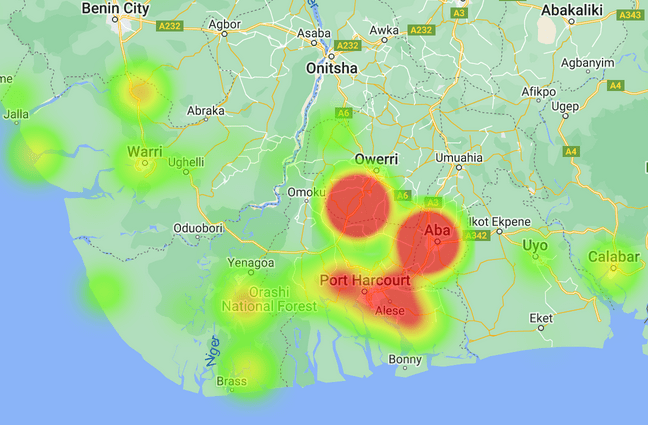
Illegal oil bunkering and artisanal crude oil refining are organized environmental crimes that are driving conflict and insecurity in the Niger Delta. According to the report1 of an environmental impact assessment of oil exploration in Ogoniland, Rivers State, conducted by the United Nations Environmental Programme (UNEP) in 2011, illegal oil bunkering and artisanal refining are major causes of water and air pollution and soil contamination in the area, with harmful impacts on human health, aquatic life, and the entire ecological system.
Apart from the environmental and health impacts, illegal artisanal oil refining has also intensified organized crime and the deployment of repressive security measures in the region. Piracy, drug trafficking and arms proliferation have been reinforced by oil bunkering and artisanal refining. According to data (see Figure 2 and 3), illegal bunkering and artisanal refining related violence caused over 500 fatalities in the region between January 2014 and April 2022.
The environmental and security impacts of illegal artisanal oil refining activities have also been exacerbated by government’s response to the situation. Government response mostly involve the destruction of bunkering sites and burning of artisanal refining facilities and illegally refined petroleum products. This often causes collateral damage including destruction of the surrounding vegetation and natural habitats, thereby intensifying environmental pollution and the disruption of local livelihoods.
Recently, following public outcry over the environmental and health impacts of artisanal oil refining, the government intensified the use of security forces to crackdown on illegal artisanal refineries and destruction of illegally refined petroleum products. This approach could be counter-productive as it could intensify environmental degradation and air pollution, and disruption of livelihoods. Moreover, since artisanal oil refining and the associated value chains are seemingly embedded in the local economy, any strategy that excludes the provision of alternative livelihoods could cause economic disruptions and occupational displacement which could intensify communal tensions and insecurity in the region.
